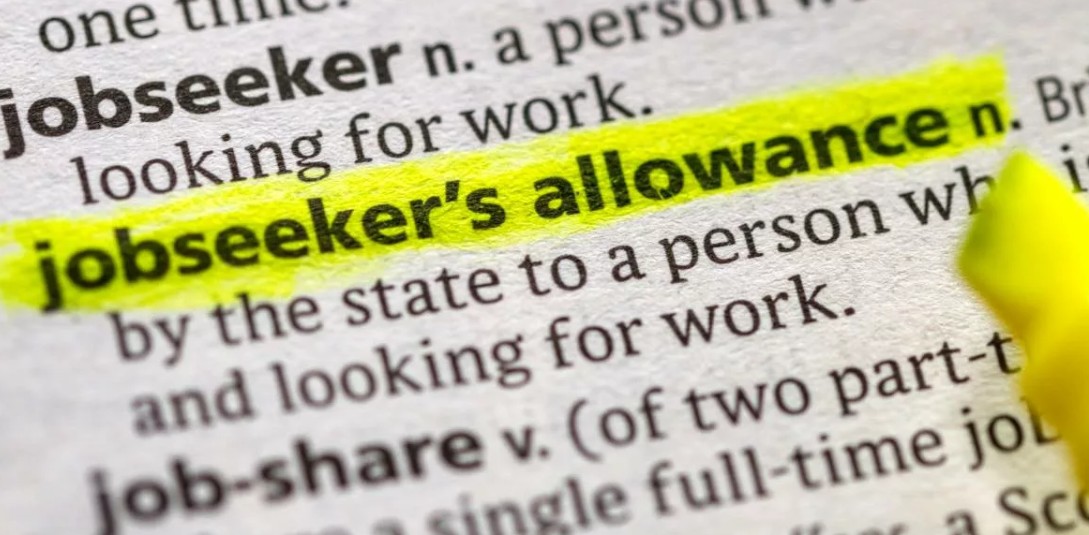When you’re out of work or working limited hours, understanding your financial options becomes critical. One of the most common questions people ask during this time is: How much is Jobseekers Allowance (JSA)?
Whether you’ve recently been made redundant, are between jobs, or re-entering the workforce after a break, Jobseeker’s Allowance offers a financial cushion. But how much can you get, and how does it work in 2024 and beyond?
This guide walks you through the details of Jobseeker’s Allowance in the UK—from payment amounts and eligibility rules to how long it lasts and what to do when your claim ends.
What Is Jobseeker’s Allowance?

Jobseeker’s Allowance, commonly known as JSA, is a benefit provided by the UK government to help people who are currently unemployed but are actively seeking work. It’s designed to give financial support while individuals look for new employment opportunities and take steps toward rejoining the workforce.
There are two primary types:
- New Style Jobseeker’s Allowance – The version most people apply for today. It’s based on your recent Class 1 National Insurance contributions rather than your income or savings.
- Income-based Jobseeker’s Allowance – This has been phased out and is only available to people who were already receiving it before Universal Credit replaced it.
If you’re making a new claim, it will almost always be for New Style JSA. This benefit runs alongside employment support services such as job coaching and career planning through your local Jobcentre Plus.
JSA is not intended to be a long-term benefit. Instead, it’s a temporary solution to help bridge the financial gap between jobs, giving you breathing room to search for suitable work while keeping you connected to job-finding resources.
How Much Is Jobseekers Allowance in 2025/26?
For the 2025/26 tax year, the standard weekly rates for New Style JSA are:
-
£72.90 per week if you are under 25
-
£92.05 per week if you are 25 or over
Payments are made every two weeks, meaning you’ll receive:
-
£145.80 every two weeks if you’re under 25
-
£184.10 every two weeks if you’re 25 or over
These rates are slightly increased from the previous year, reflecting the government’s regular uprating to help keep pace with inflation and living costs.
Importantly, Jobseeker’s Allowance is not means-tested, so your savings or your partner’s income do not affect the amount you receive. However, you must have paid enough Class 1 National Insurance contributions to qualify.
How Long Can You Receive Jobseeker’s Allowance?
New Style JSA is time-limited. You can receive it for a maximum of 182 days, which is roughly six months. After this period ends, your JSA payments will stop automatically—even if you haven’t yet found a new job.
If you still need financial help beyond these six months, you may be able to apply for Universal Credit, which is a more comprehensive benefit that considers household income, savings, rent costs, and other personal circumstances.
You can also receive both New Style JSA and Universal Credit at the same time, provided you meet the eligibility criteria for each. In this case, the JSA payment won’t reduce your Universal Credit entitlement, which can provide helpful extra support.
Who Is Eligible for Jobseeker’s Allowance?

Eligibility for New Style JSA is based mainly on your work history and job-seeking status. To qualify, you must:
- Be aged 18 or over and under State Pension age
- Be unemployed or working fewer than 16 hours per week
- Be actively looking for work
- Have paid sufficient Class 1 National Insurance contributions in the last two to three tax years
- Be available to start work immediately and able to prove your job-search activity
You will also be required to enter into a Claimant Commitment with a Jobcentre Plus work coach. This is a personalised plan that outlines the steps you’ll take to find work, such as:
- Applying for a certain number of jobs each week
- Updating your CV
- Attending interviews or training
- Coming to regular review appointments
If you do not follow the plan or fail to attend meetings without a good reason, you may face sanctions, meaning your payments could be reduced or paused for a time.
Can You Still Claim JSA While Working Part-Time?

Yes, but with limitations.
You can claim Jobseeker’s Allowance if you’re working part-time, but only if you’re working less than 16 hours per week. You must also continue to actively search for full-time employment during this period and keep up with your Claimant Commitment tasks.
Earnings from part-time work will likely reduce the amount of JSA you receive. The Department for Work and Pensions (DWP) will assess your weekly income and adjust your benefit payment accordingly.
That said, working part-time while claiming JSA can be a good way to maintain a connection to the job market, build experience, and increase income while continuing to receive support.
How Do You Apply for Jobseeker’s Allowance?
Applying for Jobseeker’s Allowance is relatively simple and can be done online through the official GOV.UK website. You’ll need to provide:
- Your National Insurance number
- Recent employment details
- Bank account information for payment
- Valid proof of identity
Once your application is submitted, you’ll be contacted by your local Jobcentre Plus to attend an appointment—this may be in-person or over the phone—where you’ll discuss your Claimant Commitment and begin the job search process.
Apply online at:
https://www.gov.uk/jobseekers-allowance
Processing times can vary, but in most cases, you’ll receive your first payment within a few weeks of approval.
What Happens When JSA Ends?
When your 182-day claim period ends, JSA payments will stop automatically. If you are still unemployed and need continued support, you should:
- Consider applying for Universal Credit, which can provide ongoing help with housing, food, and bills
- Contact your local authority to ask about Council Tax support or crisis grants
- Speak with your Jobcentre work coach to explore training programmes, volunteering, or temporary work placements
Being proactive as your JSA term nears its end is key to avoiding any financial gaps. You can begin the Universal Credit application process before your JSA expires to ensure a smooth transition between benefits.
Is It Worth Applying for Jobseeker’s Allowance?
For many, Jobseeker’s Allowance serves as an essential lifeline during a challenging time. It might not cover all your living costs, but it provides structure and support while you look for stable work.
Additionally, receiving JSA keeps you plugged into employment support services, including:
- One-on-one career coaching
- Free or subsidised training courses
- Help with interview prep, CV writing, and job applications
If you’re eligible, there is no harm in applying—it could make a real difference while you get back on your feet.
Final Thoughts
Jobseeker’s Allowance continues to play an important role in the UK’s benefits system, offering modest but valuable support to those actively seeking work. If you’ve recently found yourself unemployed or underemployed, knowing what you’re entitled to can help relieve some of the pressure.
With clear eligibility criteria and defined timelines, JSA gives structure to your job search and connects you to real resources that can help move your career forward.
Always check the latest guidance on gov.uk, and don’t hesitate to speak to an advisor if you’re unsure about your eligibility or next steps.

Leave a Reply